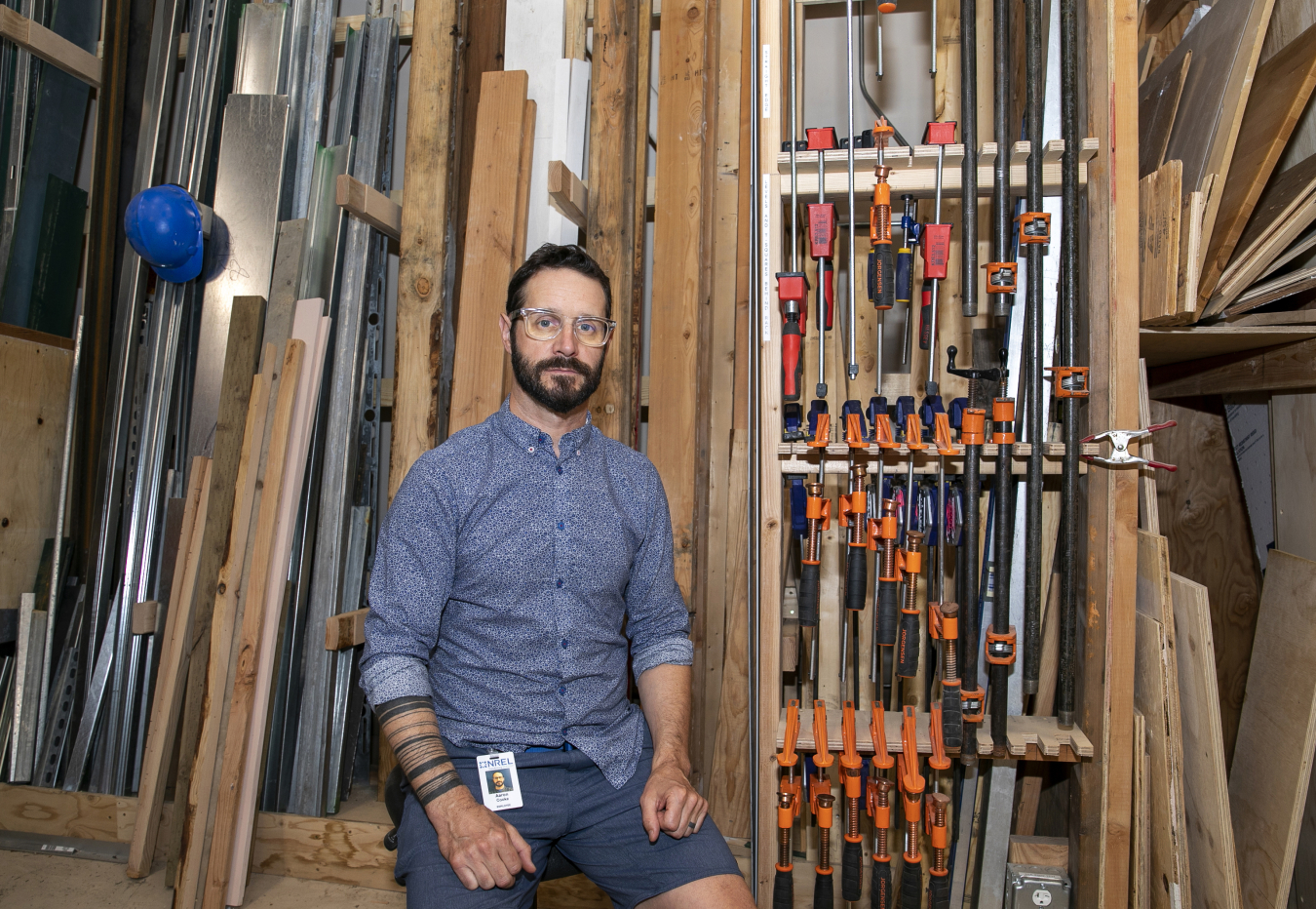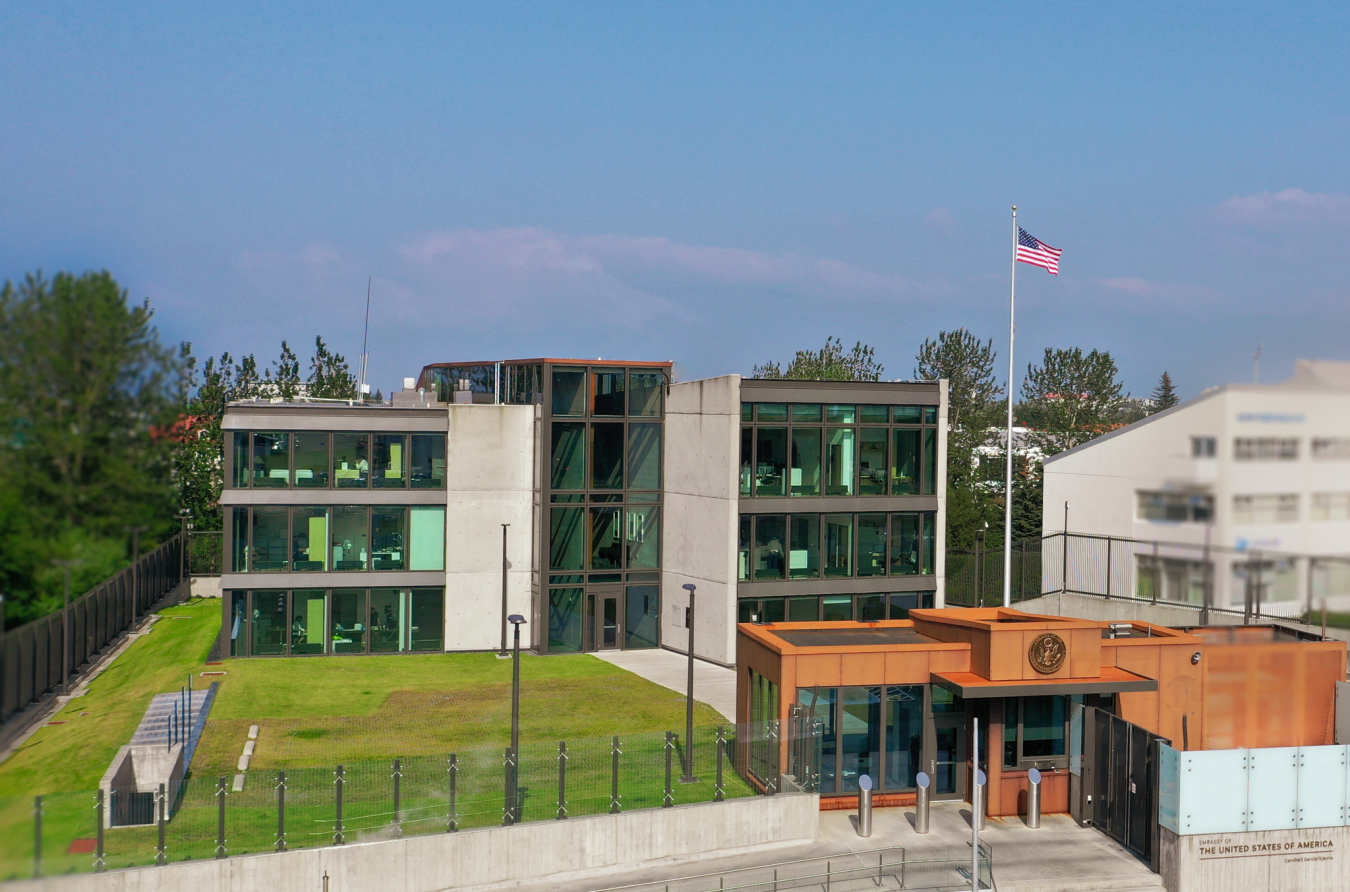NREL Architect Aaron Cooke of the Cold Climate Housing Research Campus (CCHRC) in Fairbanks, Alaska will work at the U.S. Embassy Reykjavik, Iceland, Icelandic Arctic Cooperation Network and University of Akureyri as the 1st DOE Embassy Science Fellow.
April 12, 2023
Energy innovation drives Aaron Cooke’s work at NREL’s Cold Climate Housing Research Campus (CCHRC) in Fairbanks, Alaska. In partnering with tribes, communities, and businesses to design resilient buildings for extreme climates, Cooke, an architect, provides expertise that’s transforming remote U.S. communities. Now he has the chance to extend his expertise to another Arctic nation through the Embassy Science Fellow program.
In May, he will travel to Iceland and spend 60 days working with the U.S. Embassy Reykjavik, the Icelandic Arctic Cooperation Network (IACN) and University of Akureyri, North Iceland (UNAK) as the first DOE Embassy Science fellow to enhance U.S.-Icelandic energy research ties related to the Arctic. They will develop a roadmap that identifies shared Arctic energy policy priorities, future energy demand and security, sustainable resource use, energy conversion and increased energy technology R&D.
“I will be focused on energy-related development but the cooperation aspect between our two countries is what is the most interesting to me,” Cooke said. “We are on the forefront of worldwide change. There are strong intersecting sectors in the Pan Arctic where we can share resources. I believe every Arctic country has to address design challenges but with vastly different design solutions,” Cooke said.

As someone who grew up in Alaska and has lived in both Greenland and Denmark, Cooke is well versed in the needs of northern communities. In addition, he seeks not only to represent Alaska as a fellow in Iceland, but also the United States as an Arctic nation. “On the one hand, I will be representing Alaska and on the other, the Arctic. There are different things both can offer. I want to be a voice for the nuance in these,” he said.
Given his background designing durable, affordable, and sustainable buildings in extreme climates and remote locations, such as a recent project in Unalakleet, Cooke hopes his building science insight will help inform the roadmap. “I am always going to be the ‘buildings guy’ interested in infrastructure, so it’s easy to plug into the fact that Iceland is a remote island and has remote grids. I want to learn what we can bring and in which areas we can help.”
The embassy hopes that Cooke’s energy roadmap will further Iceland’s goals to secure major investments in energy production and electricity infrastructure. He hopes it also includes building Arctic science cooperation. “A lot of Arctic countries have design challenges in common in smaller and collaborative spaces. I will be getting a new perspective in the same northern climate community experience that Iceland does well. We are looking for bilateral cooperation with that in mind,” he said.
The Embassy Science Fellows program provides the opportunity to gain insights into how research fields work in different countries and in different circumstances. With a fresh perspective, fellows lend keen observations on how science-based approaches can apply to other nations.
Since the program launched in 2001, about 50 fellows each year have worked with 18 host country embassies and consulates to evaluate scientific opportunities and implement recommendations in such areas as marine renewable energy, high-powered laser physics and biotechnology. While working overseas, ESF Fellows are U.S. government representatives, broadening research networks, cultivating diplomacy and providing evidence-based data for policy decision-making.
“The program sends a strong message that the United States is committed to Iceland and to working with Arctic partners in building a prosperous future for all Arctic peoples,” said U.S. Embassy Reykjavik staff in their program proposal. “Having a fellow will also help the Embassy’s diplomatic engagements with Icelandic authorities on Arctic-related issues, better positioning the United States to capitalize on upcoming commercial opportunities in the energy sector,” they said.

What the United States gains from his participation is building partnerships to advance American foreign policy and scientific priorities, further our understanding of worldwide science trends, and promote U.S. scientific norms. In essence, the program bridges the gap between the world of academia and the world of diplomacy.
In sponsoring the first DOE Embassy Science Fellow in Iceland, AEO looks forward to the insight that Cooke brings back about Iceland’s energy priorities and how its partnership with the US will further both Arctic countries’ energy goals.
“Our hope is that it shows that the experiences of different Arctic countries can be applied to ultimately benefit community members,” said AEO Senior Advisor Mike McEleney, who helped initiate DOE’s first Embassy Science Fellow.

